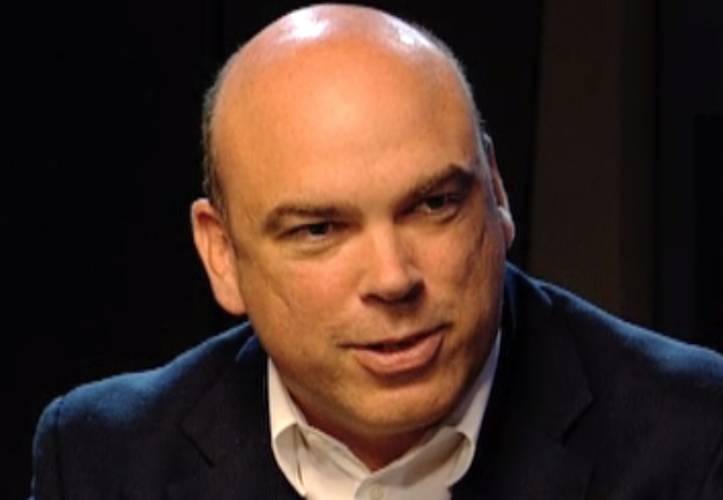HPE Urges Judge To Pick Through Deloitte-bashing Report It Claims Demolishes Autonomy Founder's Defence

Hewlett Packard Enterprise wants a High Court judge to formally consider a damning report which found that Deloitte auditors committed misconduct when they signed off British software firm Autonomy's annual accounts.
If successful, HPE's move would allow Mr Justice Hildyard to take into account the Financial Reporting Council's (FRC) extremely unflattering findings* against Deloitte and former auditors Richard Knights and Nigel Mercer, who, the FRC found, wrongfully signed off misleading statements in Autonomy's accounts.
Given that a substantial part of Lynch's High Court defence amounted to "Deloitte said it was OK so we did nothing wrong", having the FRC's findings read by the judge could punch a hole through his case.
Barrister Conall Patton QC, for HPE, told the court yesterday the company's legal application to admit the report as evidence raised three things: "First, is the proposed evidence relevant to the issues in the proceedings? Second, is it admissible? And thirdly, if it is relevant and admissible, should it be admitted as a matter of discretion?"
Richard Hill QC, for Lynch, was firmly against letting the FRC report be read in full by the judge, saying HPE was "trying to get material before this court that shows someone else's decision making rather than real expert evidence."
Mr Justice Hildyard, who alternated between a suit jacket and a cosy green jumper at various points during the day's proceedings, was thoughtful about this, saying:
The hearing eventually settled into debate about that point: was the FRC report basically a piece of expert evidence, like the testimony of expert accounting witnesses Gervase MacGregor (for Lynch) and Peter Holgate (for HPE)? And if so, how much weight should the judge place on it? Or was it, legally, something else altogether?
Mr Justice Hildyard said he had "dipped" ("but no more") into the report, saying: "I'm naturally, as a human being, curious about it."
Sporting a lockdown mane reminiscent of Rod Stewart in his heyday, Patton added that the FRC report was compiled by accounting experts as well as former Supreme Court judge Lord Dyson, meaning the judge ought to take a close look at it: "We say the tribunal was free to take advantage of its own knowledge and expertise of accounting matters."
The judge said he would make his decision about the FRC report "internally" and would give his reasons for admitting it as evidence either as part of the main judgment in the case or in a separate judgment later on.
The main judgment is expected, the court heard, to be handed down by "the end of Q1"**. Once that has happened, the extradition case against Lynch will restart, having paused until Mr Justice Hildyard pronounces his judgment. ®
Bootnotes
*"I have read the December, I think it was, or was it September – maybe it was September? – announcement that a fine had been levied and Mr Knights had been dismembered," remarked Mr Justice Hildyard with a mischievous smile.
Knights was not hanged, drawn, and quartered by the FRC, though that would have resulted in far more public interest in the accounting regulator's disciplinary methods. He was instead debarred from membership of the Institute for Chartered Accountants in England and Wales for five years and fined £500,000.
"Sounds worse than it is!" added the judge.
**Hildyard ended the day's proceedings by saying: "It's very nice – I know this isn't quite live, I've had the other odd hearing, but it's a great pleasure to have argument for once instead of the internal debate which I've enjoyed for many months, enjoyed being a relative term! Please stay safe and well, and thank you very much."
The closing submissions in the High Court case alone came to around 5,000 pages.
From Chip War To Cloud War: The Next Frontier In Global Tech Competition
The global chip war, characterized by intense competition among nations and corporations for supremacy in semiconductor ... Read more
The High Stakes Of Tech Regulation: Security Risks And Market Dynamics
The influence of tech giants in the global economy continues to grow, raising crucial questions about how to balance sec... Read more
The Tyranny Of Instagram Interiors: Why It's Time To Break Free From Algorithm-Driven Aesthetics
Instagram has become a dominant force in shaping interior design trends, offering a seemingly endless stream of inspirat... Read more
The Data Crunch In AI: Strategies For Sustainability
Exploring solutions to the imminent exhaustion of internet data for AI training.As the artificial intelligence (AI) indu... Read more
Google Abandons Four-Year Effort To Remove Cookies From Chrome Browser
After four years of dedicated effort, Google has decided to abandon its plan to remove third-party cookies from its Chro... Read more
LinkedIn Embraces AI And Gamification To Drive User Engagement And Revenue
In an effort to tackle slowing revenue growth and enhance user engagement, LinkedIn is turning to artificial intelligenc... Read more

